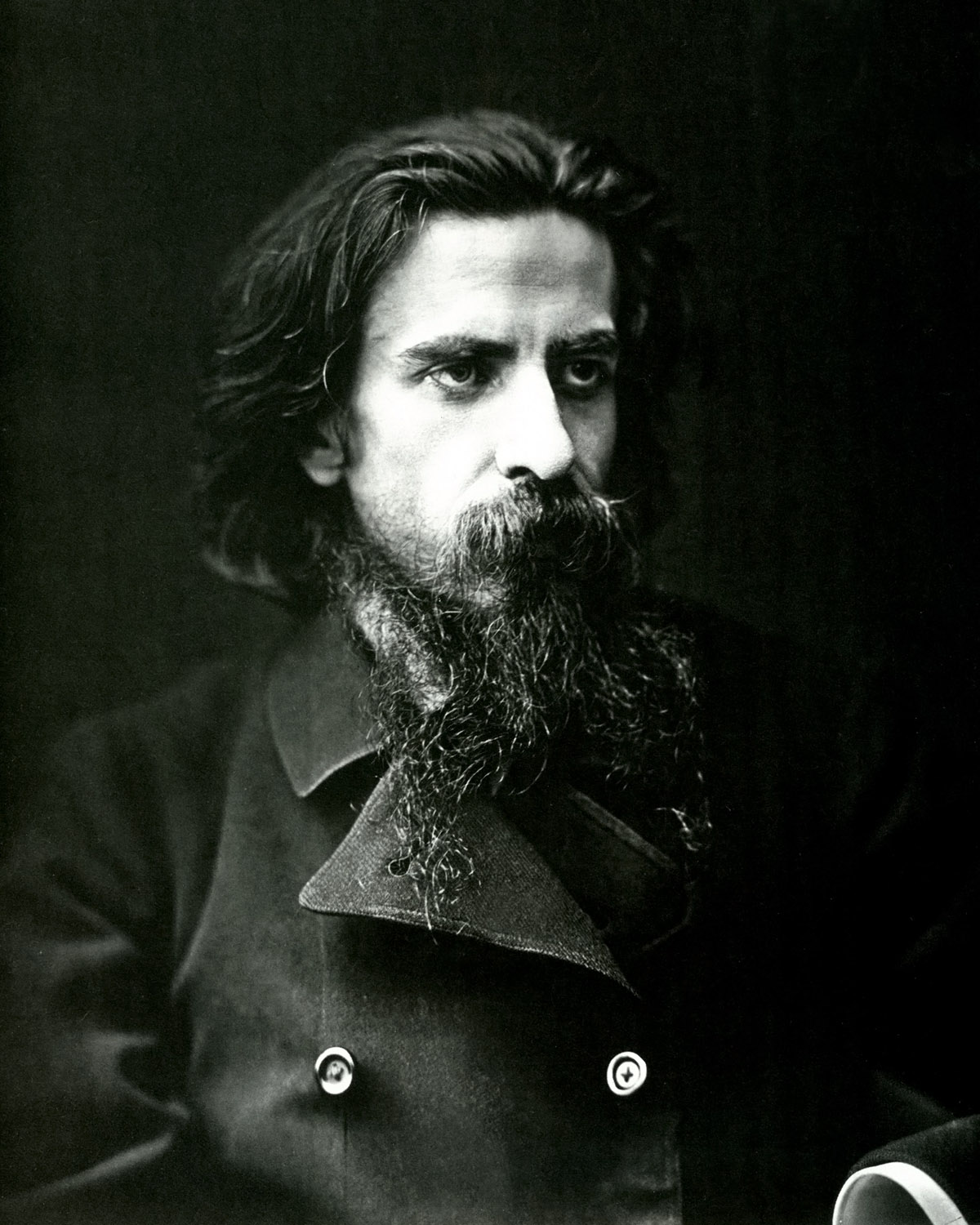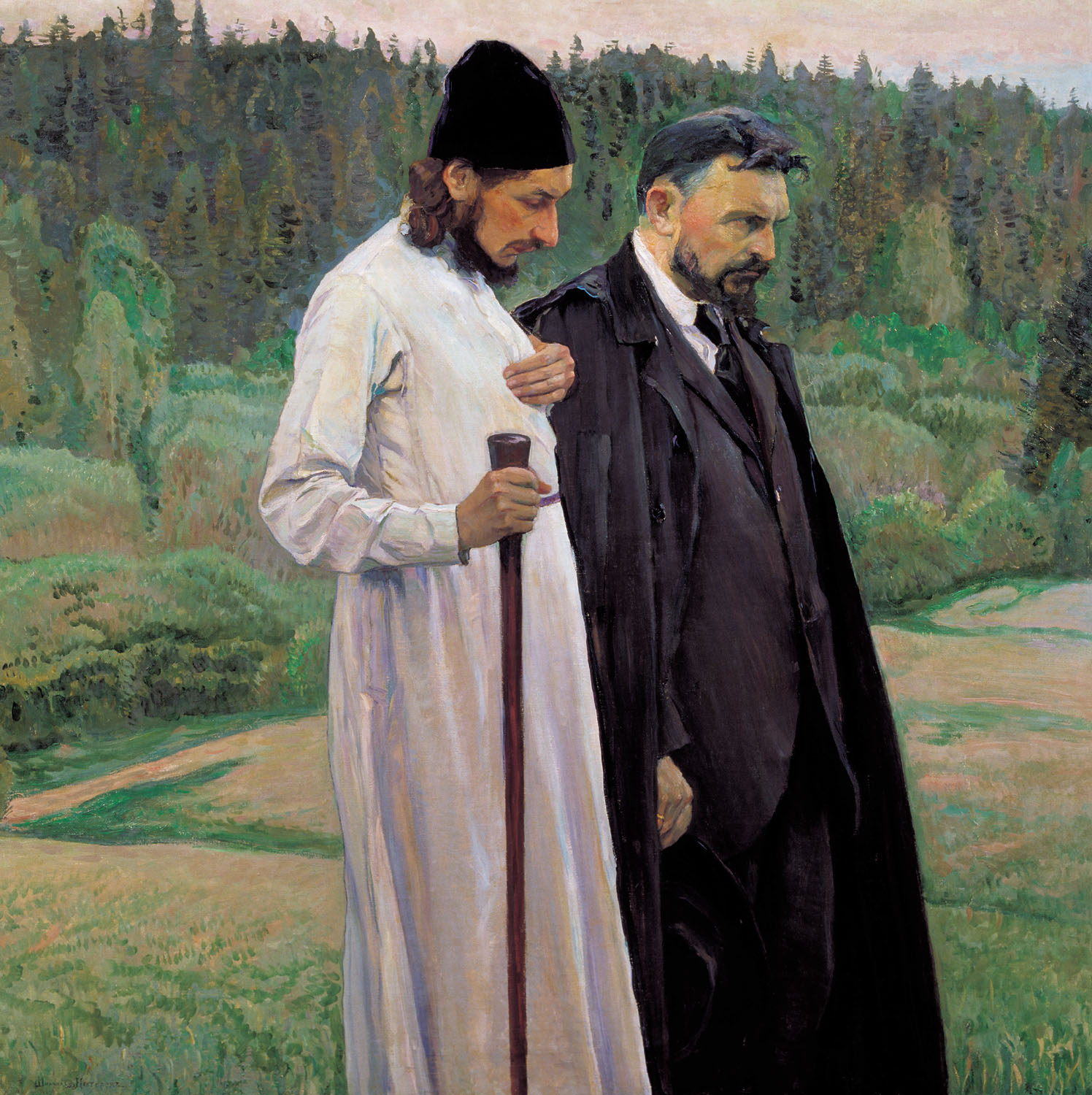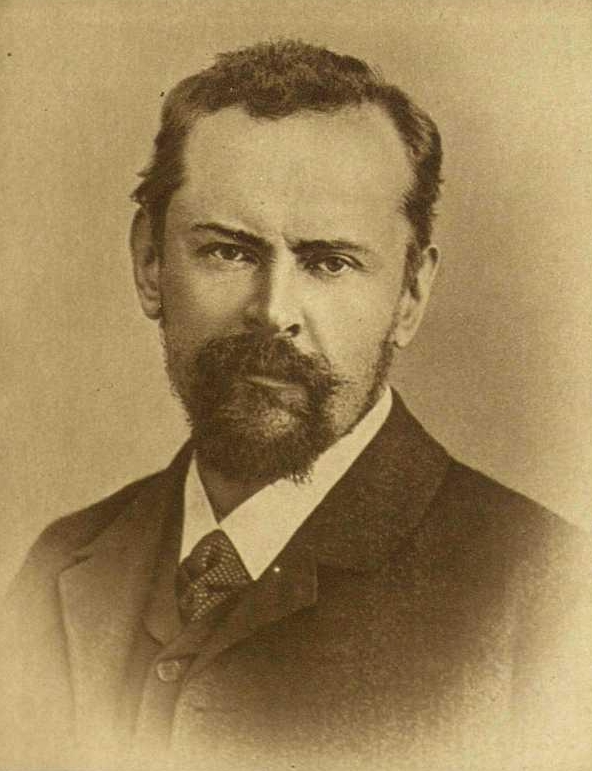|
Sobornost
Sobornost ( rus, собо́рность, p=sɐˈbornəstʲ "spiritual community of many jointly-living people") is a Russian term whose usage is primarily attributed to the 19th-century Slavophile Russian writers Ivan Kireyevsky (1806-1856) and Aleksey Khomyakov (1804-1860). The term expresses the need for co-operation between people at the expense of individualism, on the basis that opposing groups focus on what is common between them. Khomyakov believed that the Western world was progressively losing its unity because it was embracing Aristotle and his defining individualism. Kireyevsky believed that G. W. F. Hegel and Aristotle represented the same ideal of unity. Khomyakov and Kireyevsky originally used the term ''sobor'' ( ru , собор) to designate co-operation within the Russian ''obshchina'', united by a set of common convictions and Eastern Orthodox values, as opposed to the cult of individualism in the West. The term ''sobor'' in Russian has multiple co-rela ... [...More Info...] [...Related Items...] OR: [Wikipedia] [Google] [Baidu] |
Nikolai Lossky
Nikolay Onufriyevich Lossky. (; – 24 January 1965), also known as N. O. Lossky, was a Russian philosopher, representative of Russian idealism, intuitionist epistemology, personalism, libertarianism, ethics and axiology (value theory). He gave his philosophical system the name ''intuitive-personalism''. Born in Latvia, he spent his working life in St. Petersburg, New York, and Paris. He was the father of the influential Christian theologian Vladimir Lossky.Sciabarra, Chris Matthew.Investigation: the Search for Ayn Rand's Russian Roots" ''Liberty'' 1999-10. 10 August 2006. Life Lossky was born in Krāslava then in the Russian Empire. His father, Onufry Lossky, had Belarusian roots (his grandfather was a Greek-Catholic Uniate priest) and was an Eastern Orthodox Christian; his mother Adelajda Przylenicka was Polish and Roman Catholic. He was expelled from school for propagating atheism. Lossky undertook postgraduate studies in Germany under Wilhelm Windelband, Wilhelm Wundt and ... [...More Info...] [...Related Items...] OR: [Wikipedia] [Google] [Baidu] |
Vladimir Solovyov (philosopher)
Vladimir Sergeyevich Solovyov (russian: Влади́мир Серге́евич Соловьёв; also romanized as Soloviev; – ), a Russian philosopher, theologian, poet, pamphleteer, and literary critic, played a significant role in the development of Russian philosophy and poetry at the end of the 19th century and in the spiritual renaissance of the early-20th century. Life and work Vladimir Solovyov was born in Moscow; the son of the historian Sergey Mikhaylovich Solovyov (1820–1879); his elder brother Vsevolod (1849-1903), became a historical novelist, and his younger sister, Polyxena (1867-1924), became a poet. Vladimir Solovyov's mother Polyxena Vladimirovna belonged to a family of Polish origin and had, among her ancestors, philosopher Gregory Skovoroda (1722–1794). In his teens, he renounced Eastern Orthodoxy for nihilism, but later his disapproval of positivism saw him begin to express views that were in line with those of the Orthodox Church. From 1 ... [...More Info...] [...Related Items...] OR: [Wikipedia] [Google] [Baidu] |
Ecumenical
Ecumenism (), also spelled oecumenism, is the concept and principle that Christians Christians () are people who follow or adhere to Christianity, a monotheistic Abrahamic religion based on the life and teachings of Jesus Christ. The words ''Christ'' and ''Christian'' derive from the Koine Greek title ''Christós'' (Χρι ... who belong to different Christian denominations should work together to develop closer relationships among their churches and promote Christian unity. The adjective ''ecumenical'' is thus applied to any initiative that encourages greater cooperation and union among Christian denominations and Christian Church, churches. The fact that all Christians belonging to mainstream Christian denominations profess faith in Jesus as Lord and Saviour over a believer's life, believe that the Bible is the infallible, inerrant and inspired word of God (John 1:1), and receive baptism according to the Trinitarian formula is seen as being a basis for ecumenism and ... [...More Info...] [...Related Items...] OR: [Wikipedia] [Google] [Baidu] |
Aleksey Khomyakov
Aleksey Stepanovich Khomyakov (russian: Алексе́й Степа́нович Хомяко́в; May 13 ( O.S. May 1) 1804, Moscow – October 5 (O.S. September 23), 1860, Moscow) was a Russian theologian, philosopher, poet and amateur artist. He co-founded the Slavophile movement along with Ivan Kireyevsky, and he became one of its most distinguished theoreticians. His son Nikolay Khomyakov was a speaker of the State Duma. Biography Khomyakov's whole life was centred on Moscow. He viewed this "thousand-domed city" as the epitome of the Russian way of life. Equally successful as a landlord and conversationalist, he published very little during his lifetime. His writings, printed posthumously by his friends and disciples, exerted a profound influence on the Russian Orthodox Church and Russian lay philosophers, such as Fyodor Dostoyevsky, Konstantin Pobedonostsev, and Vladimir Solovyov. For Khomyakov, socialism and capitalism were equally repugnant offspring of Western de ... [...More Info...] [...Related Items...] OR: [Wikipedia] [Google] [Baidu] |
Dichotomy
A dichotomy is a partition of a whole (or a set) into two parts (subsets). In other words, this couple of parts must be * jointly exhaustive: everything must belong to one part or the other, and * mutually exclusive: nothing can belong simultaneously to both parts. If there is a concept A, and it is split into parts B and not-B, then the parts form a dichotomy: they are mutually exclusive, since no part of B is contained in not-B and vice versa, and they are jointly exhaustive, since they cover all of A, and together again give A. Such a partition is also frequently called a bipartition. The two parts thus formed are complements. In logic, the partitions are opposites if there exists a proposition such that it holds over one and not the other. Treating continuous variables or multi categorical variables as binary variables is called dichotomization. The discretization error inherent in dichotomization is temporarily ignored for modeling purposes. Etymology The ... [...More Info...] [...Related Items...] OR: [Wikipedia] [Google] [Baidu] |
Pochvennichestvo
''Pochvennichestvo'' (; rus, Почвенничество, p=ˈpot͡ɕvʲɪnnʲɪt͡ɕɪstvə, roughly "return to the native soil", from почва "soil") was a late 19th-century movement in Russia that tied in closely with its contemporary ideology, Slavophilia. History The Slavophiles and the ''Pochvennichestvo'' supported the complete emancipation of serfdom, stressed a strong desire to return to the idealised past of Russian history, and opposed Europeanization. They also chose a complete rejection of the nihilist, classical liberal and Marxist movements of the time. Their primary focus was to change Russian society by the humbling of the self and social reform through the Russian Orthodox Church, rather than the radical implementations of the intelligentsia. The major differences between the Slavophiles and the ''Pochvennichestvo'' were that the former detested the Westernisation policies of Peter the Great, but the latter praised what were seen as the benefits of th ... [...More Info...] [...Related Items...] OR: [Wikipedia] [Google] [Baidu] |
Pavel Florensky
Pavel Alexandrovich Florensky (also P. A. Florenskiĭ, Florenskii, Florenskij; russian: Па́вел Алекса́ндрович Флоре́нский; hy, Պավել Ֆլորենսկի, Pavel Florenski; – December 8, 1937) was a Russian Orthodox theologian, priest, philosopher, mathematician, physicist, electrical engineer, inventor, polymath and neomartyr. Biography Early life Pavel Aleksandrovich Florensky was born on in the town of Yevlakh in Elisabethpol Governorate (in present-day western Azerbaijan) into the family of a railroad engineer, Aleksandr Florensky. His father came from a family of Russian Orthodox priests while his mother Olga (Salomia) Saparova (Saparyan, Sapharashvili) was of the Tbilisi Armenian nobility in Georgia.Natalino Valentini, (ed.) Pavel Florenskij, ''La colonna e il fondamento della verità'', San Paolo editore, 2010, p. lxxi. His maternal grandmother Sofia Paatova (Paatashvili) was from an Armenian family from Karabakh, living in Bolni ... [...More Info...] [...Related Items...] OR: [Wikipedia] [Google] [Baidu] |
Nikolai Berdyaev
Nikolai Alexandrovich Berdyaev (; russian: Никола́й Алекса́ндрович Бердя́ев; – 24 March 1948) was a Russian philosopher, theologian, and Christian existentialist who emphasized the existential spiritual significance of human freedom and the human person. Alternative historical spellings of his surname in English include "Berdiaev" and "Berdiaeff", and of his given name "Nicolas" and "Nicholas". Biography Nikolai Berdyaev was born at Obukhovo, Kiev Governorate (present-day Obukhiv, Ukraine) in 1874, in an aristocratic military family. His father, Alexander Mikhailovich Berdyaev, came from a long line of Russian nobility. Almost all of Alexander Mikhailovich's ancestors served as high-ranking military officers, but he resigned from the army quite early and became active in the social life of the aristocracy. Nikolai's mother, Alina Sergeevna Berdyaeva, was half-French and came from the top levels of both French and Russian nobility. He also ... [...More Info...] [...Related Items...] OR: [Wikipedia] [Google] [Baidu] |
Sergei Bulgakov
Sergei Nikolaevich Bulgakov (; russian: Серге́й Никола́евич Булга́ков; – 13 July 1944) was a Russian Orthodox theologian, priest, philosopher, and economist. Biography Early life: 1871–1898 Sergei Nikolaevich Bulgakov was born on 16 July 1871 to the family of an Orthodox priest (Nikolai Bulgakov) in the town of Livny, Oryol guberniya, in Russia. The family produced Orthodox priests for six generations, beginning in the sixteenth century with their ancestor Bulgak, a Tatar from whom the family name derives. Metropolitan Macarius Bulgakov (1816–1882), one of the major Eastern Orthodox theologians of his days, and one of the most important Russian church historians, was a distant relative. At the age of fourteen, after three years at the local parish school, Bulgakov entered the seminary in Orel. In 1888, however, Bulgakov quit the seminary after a loss of his faith. Bulgakov later notes that the passion for the priesthood waned as he grew disench ... [...More Info...] [...Related Items...] OR: [Wikipedia] [Google] [Baidu] |
Russian Orthodox Church
, native_name_lang = ru , image = Moscow July 2011-7a.jpg , imagewidth = , alt = , caption = Cathedral of Christ the Saviour in Moscow, Russia , abbreviation = ROC , type = , main_classification = Eastern Orthodox , orientation = Russian Orthodoxy , scripture = Elizabeth Bible (Church Slavonic language, Church Slavonic)Russian Synodal Bible, Synodal Bible (Russian language, Russian) , theology = Eastern Orthodox theology , polity = Episcopal polity, Episcopal , governance = Holy Synod of the Russian Orthodox Church , structure = Koinonia, Communion , leader_title = , leader_name = , leader_title1 = Primate , leader_name1 = Patriarch of Moscow and all Rus', Patriarch Patriarch Kirill of Moscow, Kirill of Moscow , leader_title2 = , leader_name2 = , leader_title3 = Bishops , leader_ ... [...More Info...] [...Related Items...] OR: [Wikipedia] [Google] [Baidu] |
Sergei Nikolaevich Trubetskoy
Prince Sergei Nikolaevich Trubetskoy (russian: Серге́й Никола́евич Трубецко́й; 4 August Old_Style_and_New_Style_dates.html" ;"title="nowiki/> O. S. 23 June1862 – 23 September 1905) was a List of Russian philosophers">Russian religious philosopher. He was the son of Prince Nikolai Petrovitch Trubetskoy">Christian philosophy">religious philosopher. He was the son of Prince Nikolai Petrovitch Trubetskoy, co-founder of the Moscow Conservatory, and Sophia Alekseievna Lopouchina, who was a big influence on his religious thought. Trubetskoy and his brother, Evgenii Nikolaevitch Troubetzkoy (1863–1920), continued Vladimir Solovyov's work on developing a modern Christian philosophy of the world. He was also a professor of philosophy at Moscow University and a founding member of the underground discussion circle '' Beseda''.Figes, p. 168 Biography Early life Trubetskoy became an adherent of the British Positivists Herbert Spencer and John Stuart Mill as ... [...More Info...] [...Related Items...] OR: [Wikipedia] [Google] [Baidu] |






